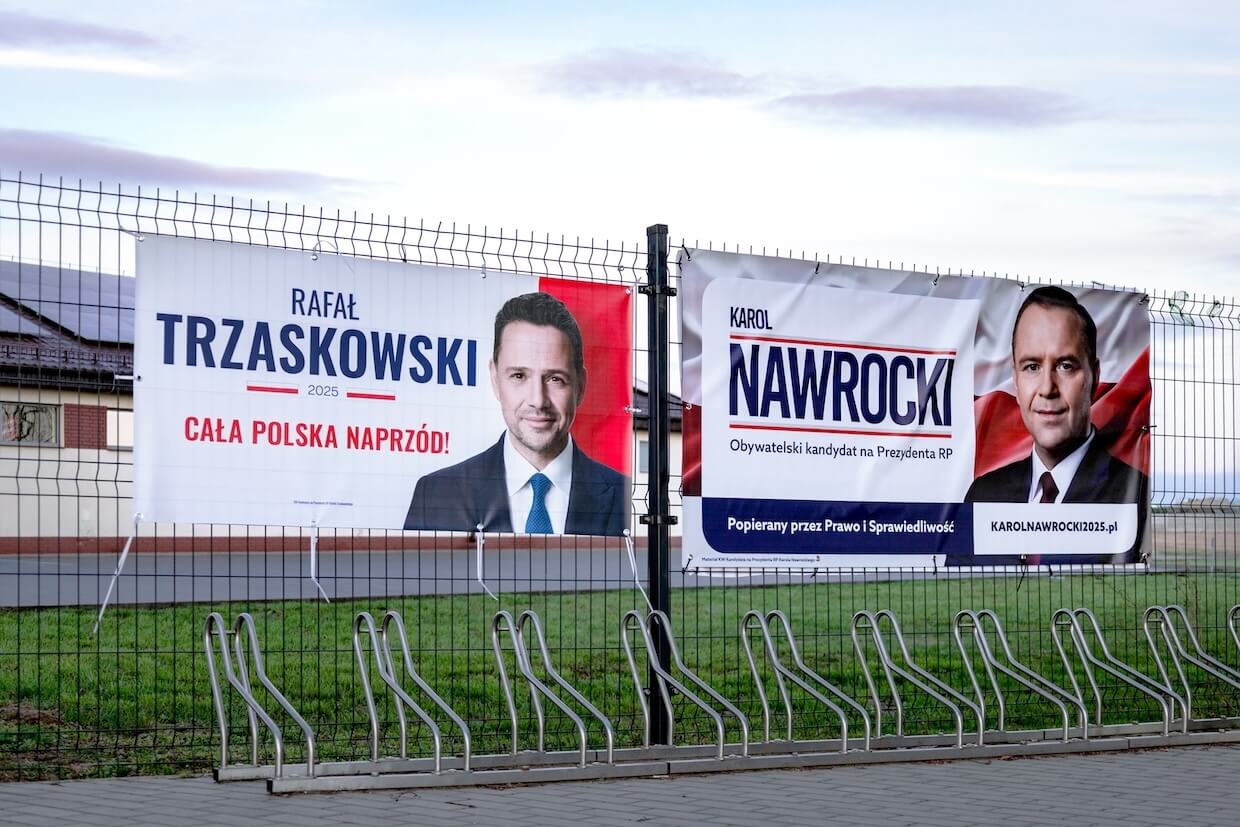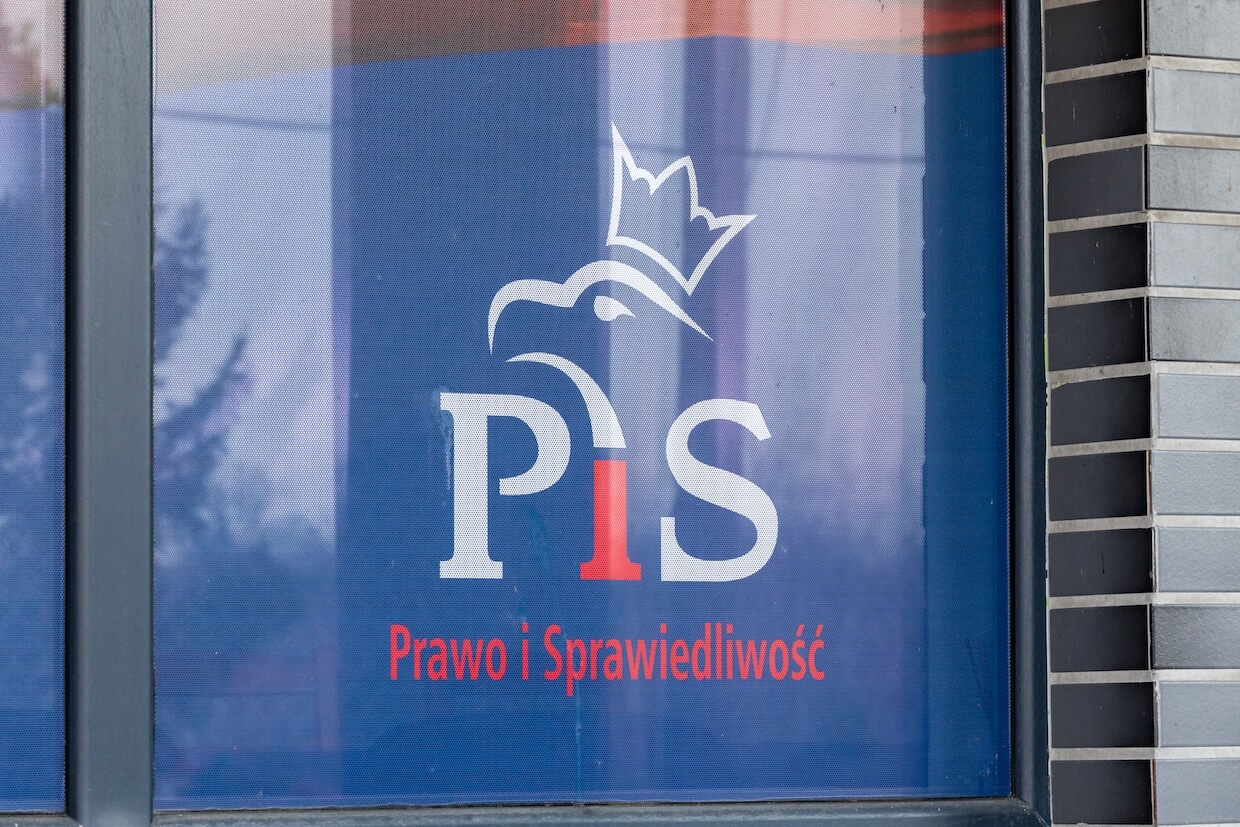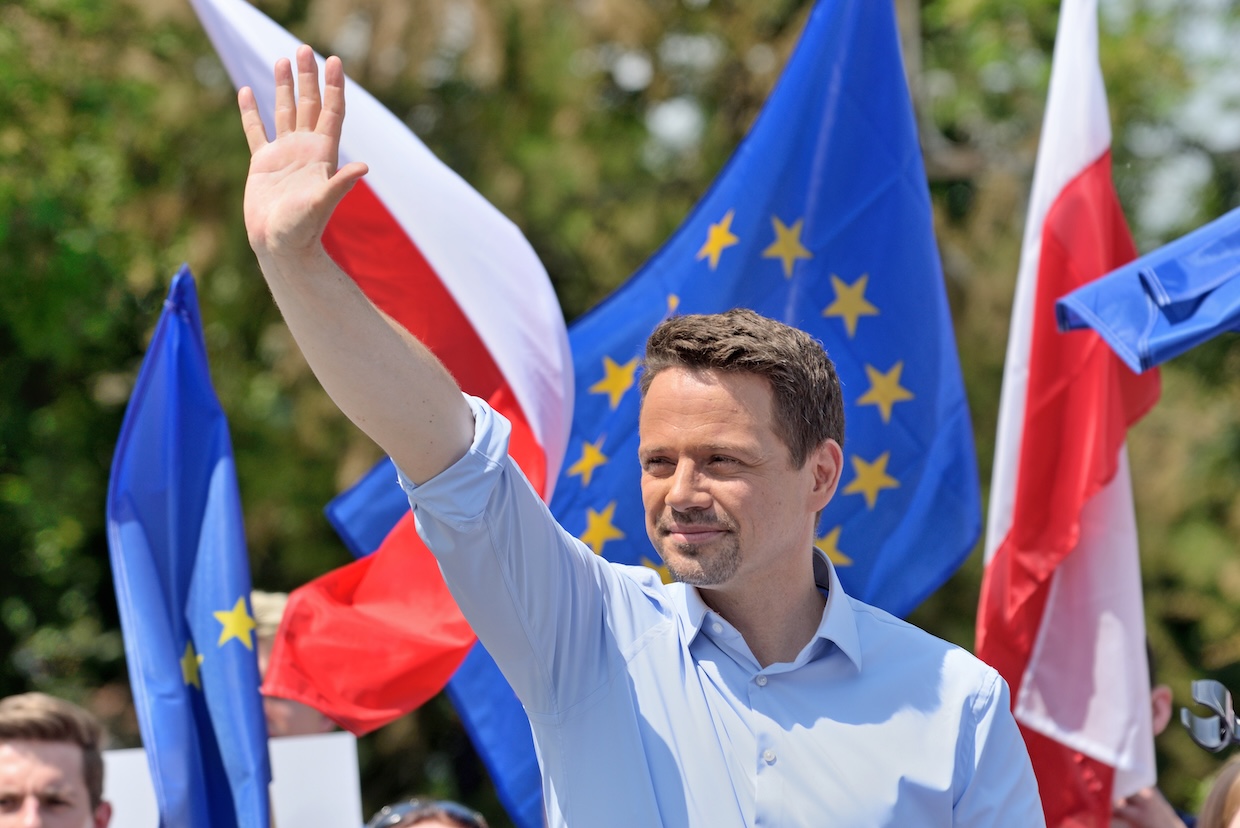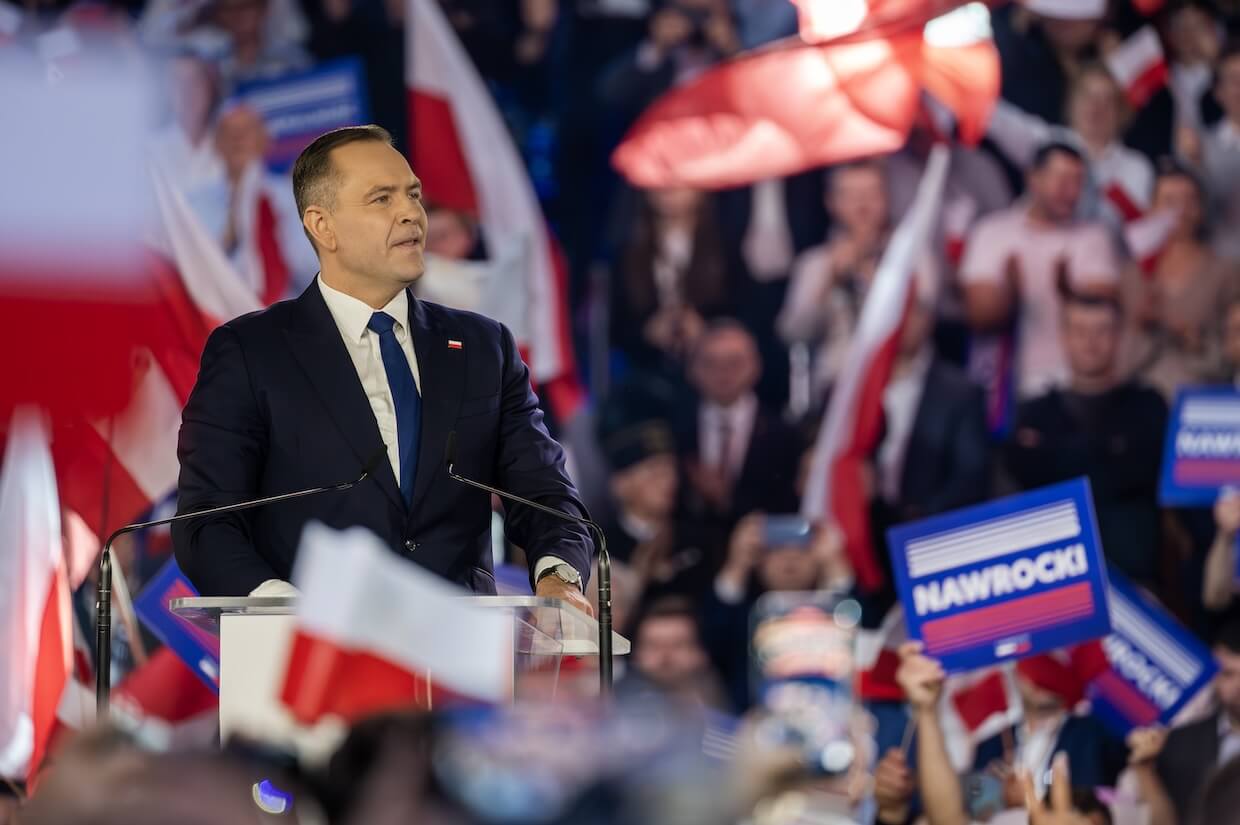In this compelling post-election interview, Professor Radosław Markowski offers a candid, expert analysis of Poland’s newly elected president, Karol Nawrocki. Backed by PiS and inspired by Trump-style politics, Nawrocki’s narrow win poses serious challenges to Prime Minister Tusk’s pro-European government. Professor Markowski dissects the roots of this upset—calling it the result of a “fantastically prepared campaign”—and warns of potential institutional gridlock and democratic backsliding. While describing Nawrocki as “inexperienced” and lacking policy depth, Professor Markowski holds out a sliver of hope that he may rise above partisan loyalties. With sharp insights into Polish society, EU disillusionment, and the dangers of populist overreach, this interview is essential reading on Poland’s increasingly polarized and uncertain political trajectory.
Interview by Selcuk Gultasli
In the aftermath of Poland’s 2025 presidential election, the political landscape remains fraught with uncertainty, ideological tension, and institutional fragility. Karol Nawrocki, a nationalist conservative backed by PiS and inspired by Trump-style politics, narrowly secured victory with 50.89% of the vote, defeating centrist candidate Rafal Trzaskowski. His win delivers a major setback to Prime Minister Donald Tusk’s pro-European government, which has been striving to reverse judicial reforms enacted under the previous PiS administration. With presidential veto power at his disposal, Nawrocki is expected to obstruct key liberal policies, deepening political gridlock and intensifying concerns about democratic backsliding.
In this timely and probing interview, renowned political scientist Professor Radosław Markowski offers a sharp analysis of Nawrocki’s narrow win, calling it the product of a “fantastically prepared campaign” rather than a sign of a lasting ideological shift. Professor Markowski emphasizes that Nawrocki is “definitely inexperienced,” lacking basic knowledge of international relations and economics. Yet despite these limitations, he entertains a faint hope—perhaps naively—that Nawrocki might rise above his campaign alliances and “act reasonably and become a good politician serving the country and society he represents.”
This cautious optimism is tempered by structural concerns about Poland’s democratic integrity. Professor Markowski draws a direct line between the present moment and the legacy of what he has termed “free but unfair” elections. Referencing his article in West European Politics, he highlights the disproportionality of PiS’s 2015 win—where only 18.8% of eligible voters delivered a 51% parliamentary majority—and the subsequent “eight years of structural lawlessness.” Nawrocki’s victory, Professor Markowski argues, does not signal a visionary mandate, but reflects the effective demobilization of liberal voters and the disciplined overperformance of a conservative-nationalist base.
With his strong nationalist rhetoric and pledges to limit EU influence while promoting Polish sovereignty, Nawrocki’s rise has been cheered by Eurosceptic leaders across Central Europe, including Viktor Orbán and Marine Le Pen. Yet his alignment with this populist-right alliance only heightens fears of further democratic erosion in a country once considered a model of post-communist European integration.
Whether Nawrocki becomes a transformative statesman or a forgettable footnote in Polish political history remains an open question. As Professor Markowski underscores, the new president now faces a choice: to entrench polarization and gridlock, or to rise above partisan constraints and define his legacy in the eyes of future generations.
Here is the lightly edited transcript of the interview with Professor Radosław Markowski.
Democracy at a Tipping Point

Professor Radosław Markowski, thank you very much for joining our interview series. Let me start right away with the first question: In the light of Karol Nawrocki’s narrow victory, how do you interpret this outcome within your framework of “plurality support for democratic decay”? Does this mark a deepening of democratic vulnerability in Poland, despite Law and Justice party’s (PiS) 2023 parliamentary loss?
Professor Radosław Markowski: Let’s first try to recall the facts. In 2023, PiS won the elections against Platforma Obywatelska by nearly 4 percentage points—an equivalent of several hundred thousand votes—but it was unable to govern due to its lack of coalition-building capacity. Today in 2025, they won by a significantly smaller margin—just 1.5% effectively. It is a sort of a tie with a slight edge toward one of the candidates. However, the narrative remains consistent.
Polish society—and this is the focus of my ongoing research, soon to be published—is fundamentally liberal, progressive, and cosmopolitan. This stands in stark contrast to the narratives promoted by pundits and public intellectuals who advocate for a nationalist, conservative, and ultra-religious vision of Poland. The proportion of those who support liberal and progressive values over traditional and nationalistic ones is typically three to one, two to one, or at worst, three to two. Across more than 20 dimensions of this cultural divide, I see no evidence of conservative-nationalist dominance.
The problem lies in the fact that these conservative forces, supported by the Polish Catholic Church and representative of a departing world order, have successfully achieved nearly full mobilization in the last decade or decade and a half. Ninety to ninety-nine percent of all available nationalist-conservative voters turn out for elections.
On the other hand, the liberal-progressive side struggles, occasionally succeeding—as in 2023. Compounding this issue is the fact that PiS supporters are notably older, less educated, primarily from rural areas or outside the labor market by choice or by circumstance and are ill-equipped for success in a meritocratic modern world. They are part of society, of course—this is a description, not a judgment. Their mobilization is straightforward, relying on black-and-white imagery, simplifications, and the narrative of stark Manichean good versus evil.
In contrast, the liberal-progressive side comprises highly educated voters—predominantly individuals with high socioeconomic status, capable people who run their own businesses, academics, entrepreneurs, and the middle class. This is a challenging electorate. They are critical readers who verify information coming from politicians and reject simplistic depictions of the world. They ask not only about the goals but also about the means of achieving those goals. They question; they ask about possible side effects. They ask about alternative policies. They are concerned about trade-offs.
More so, they are very capricious in a way and dissatisfied with trivial answers to complicated matters. And this is precisely why it is so tough to attract these liberal, cosmopolitan, progressive voters. They are knowledgeable people who do not buy simplistic propaganda or demagoguery from politicians.
Eight Years of Structural Lawlessness in Poland

You’ve previously described Polish elections as “free but unfair.” Do the 2025 presidential results reflect a continuity of institutional imbalance, particularly with regard to partisan control over historical institutions like the Institute of National Remembrance?
Professor Radosław Markowski: Let me say—this is a subtitle of one of my articles in West European Politics—that the elections were "free but unfair," with unfair results. What I meant then is that in the 2015 elections, in which PiS won in a free and fair contest, they received 5.7 million votes out of nearly 31 million eligible voters—meaning that only 18.8% of eligible voters supported PiS, yet they gained a 51% parliamentary majority. You know, this kind of miracle almost never happens under proportional representation. But due to 17% of wasted votes and the D’Hondt formula—which eliminated a significant portion of minor votes—it was possible.
There would have been no problem with this kind of translation from 18.8% to 51% parliamentary majority if they had merely run the country in the sense of administrating government affairs. But unfortunately, they behaved after that election as if they had received a qualified majority, and they started changing the constitutional rules of the game.
I like Adam Przeworski’s definition of democracy, which says: democracy is institutionalized uncertainty. There should be frozen, strict, and obeyed rules of the game that never change during the process of electing politicians—but the outcomes of these rules are unknown, and that’s the beauty of democracy.
So, what PiS did illegally since 2015—because they thought this kind of miracle would never happen again—was to bash the Constitutional Tribunal, interfere with the Supreme Court by inventing a new chamber, the “Extraordinary Chamber of Something.” It is "extraordinary" in the sense that nobody in Europe or worldwide recognizes it. We experienced a period of eight years of structural lawlessness in Poland, which excluded us from the community of civilized democracies in the European Union.
We used to enjoy relatively high prestige with people like Jerzy Buzek, former President of the European Parliament, and Donald Tusk, who was President of the European Council. These roles may have even overstated Poland’s influence, but they indicated that Poland was politically important in the EU. That prestige vanished immediately after PiS came to power and began misbehaving in terms of the rule of law and democratic procedures.
Nawrocki’s Win: A Campaign Masterpiece or a Populist Rebrand?
Given Nawrocki’s political inexperience but ideological clarity, how do you interpret his victory as a possible recalibration of Poland’s populist-authoritarian project? Is this a new chapter or simply a rebranding of the PiS legacy?
Professor Radosław Markowski: It’s very hard to say who he is. He’s definitely inexperienced. He lacks basic knowledge about international relations, about economic issues, and so forth. Again, let me reiterate: Poland is a parliamentary democracy in which the executive power lies with the Prime Minister and his government. The president is mainly symbolic in terms of positive policies. He can propose something, but it is up to the parliamentary majority to pay attention to his activities. He, however, has negative powers. He can veto, and this is unfortunately what we expect from him. We’ll talk about that maybe later on.
But back to the campaign, I would say—well, in a way, it is quite interesting, and we’ll probably be teaching students about it in the future. It was a campaign masterpiece by Nawrocki’s electoral team—by the people who managed to craft a serious presidential contender out of almost nothing. Their most notable success was in discouraging turnout for Trzaskowski in the second round. Typically, second-round presidential contests hinge more on demobilizing the opponent’s base than on attracting new voters. In short, this was not a substantial victory in terms of broad public endorsement. Rather, it clearly illustrates how easily a poorly informed segment of the electorate can be—well, if you prefer, persuaded. If you prefer the term manipulated, that works too. Meanwhile, on Trzaskowski’s side, there was a clear failure of his electoral staff.
What does this outcome suggest about the limits of liberal coalition-building in Poland? Could Trzaskowski’s failure be linked to coalition fatigue, perceived elitism, or a lack of emotional mobilization compared to the nationalist right?
Professor Radosław Markowski: I already spoke about mobilization before, so I won’t repeat that here. But yes, the conservative nationalist camp is—quite frankly—astronomically over-mobilized. Virtually everyone in that camp turns out to vote. Unfortunately, the liberal democratic camp is less mobilized, and there are many reasons for that. One contributing factor is the one and a half years of the new government and its difficulties in implementing certain policies. However, it’s important to note that these delays—particularly on issues that matter deeply to many, such as abortion rights and women’s issues—were largely due to the fact that the current president, Andrzej Duda, had already made it clear he would veto such legislation.
So, the government was, de facto, waiting for a new opening—once the president is from their camp, or at least a person who is neutral and capable of reading what are the prerogatives of the president enshrined in the Polish constitution.
So, we have to wait and see. I don’t think I would interpret this win of Nawrocki as anything more than an incident and a fantastically prepared campaign by his staff, rather than something more deeply rooted. But one should also recognize that such victories—unexpected victories of unknown persons—sometimes redefine the political landscape and the political developments, and this should also be taken seriously into account.
Why Trzaskowski’s Campaign Missed the Mark

To what extent did the personalization of the campaign around symbolic figures (Trzaskowski as elite technocrat vs. Nawrocki as populist traditionalist) reinforce identity cleavages over policy-based electoral competition?
Professor Radosław Markowski: Let me reiterate a point about Trzaskowski’s campaign that I mentioned earlier. His team made a fundamental mistake—one I publicly flagged six months ago: they attempted to court the right-wing electorate. This group is a clear minority in Poland and already firmly aligned and mobilized by parties like PiS and Confederacja. The likelihood of swaying voters from that camp was virtually nonexistent.
This approach came at the expense of engaging the left-liberal electorate with progressive, liberal ideas. Trzaskowski is not an ultra-progressive or ultra-liberal, but he is certainly a meritocratic, cosmopolitan liberal—someone who speaks several languages fluently, who comes from an elite Warsaw family. Yet, he and his campaign team decided to pretend he was “one of us”—an average guy. One of the campaign’s obsessions was to ensure that no one mentioned his multilingualism.
This is a typical populist miscalculation—thinking you win elections by downplaying meritocracy. Unfortunately, it backfired. We estimate that around 1.5 million people who voted for the current ruling coalition in 2023 became disillusioned with Trzaskowski due to these mixed signals and overt appeals to the right-wing electorate. It was a real disappointment for them.
In the light of your concept of “Eurodisappointment,” to what extent does Trzaskowski’s loss suggest growing frustration even among pro-European voters with the EU’s perceived ineffectiveness in addressing democratic backsliding?
Professor Radosław Markowski: Together with my co-author, we pointed out in an article in European Union Politics that we began observing, around 2021–2022, a new phenomenon we called “new Euroscepticism” or “Eurodisappointment” among Poles. This isn’t the typical Euroscepticism rooted in xenophobic or nationalist attitudes. Rather, it’s a disappointment driven by frustration with the European Union’s inability to push back against leaders like Orbán and Kaczyński.
That old saying— “Brussels barks but doesn’t bite”— began to resonate, especially among a segment of the Polish population that had long been very enthusiastic about the EU. It fostered a growing suspicion that the EU might not be genuinely committed to upholding its core axiological pillars—democracy, the rule of law, and fundamental values.
Poland’s Populist Path and the Limits of EU Leverage
Has the European Union’s cautious and often delayed response to autocratizing member states like Hungary and Poland amplified the populist portrayal of Brussels as politically impotent? Could Nawrocki’s presidency signal a shift toward a more defiant, nationalist approach to EU engagement—echoing Orbán’s model of selective integration without formal rupture?
Professor Radosław Markowski: It might not be exactly what Orbán has invented, because in Poland—unlike in Hungary—there isn’t a deep-rooted historical sentiment akin to Hungarians’ longing for “Greater Hungary” or resentment over the Treaty of Trianon. In Hungary today, you can walk into nearly any hotel or public space and see maps depicting a pre-Trianon Hungary—three times its current size.
Poland also had its imperial moments in the past, being much larger in both territory and population. But even among nationalists, that imperial history doesn’t serve as a powerful reference point in contemporary politics. So, emulating Orbán isn’t straightforward.
Also, Orbán won a constitutional majority in Hungary’s first free and fair 2010 election. He could legitimately claim the mandate to rewrite the rules—which he did. It’s another matter how he later amended the constitution. But that legitimacy gave him more latitude than PiS or Nawrocki have in Poland.
Back to Polish politics: Nawrocki’s attitude toward the EU is definitely critical. But unfortunately, this is paired with a kind of infantile pro-Americanism—specifically, pro-Trumpism. You hear ideas like Poland leading the Trimarium Pact (Poland, Estonia, Latvia, Lithuania, Moldova, Georgia, North Macedonia, etc.). While maintaining good relations with these countries is important—especially those aspiring to EU membership—this can’t replace engagement with core EU mechanisms.
We should be at the heart of EU decision-making. Poland was recently re-invited by figures like Friedrich Merz and Emmanuel Macron to take a central role in European affairs—particularly because of our prescient warnings about Vladimir Putin and the war in Ukraine. As early as 2005, 2010, and 2014, we sounded alarms about Putin’s ambitions—warnings largely ignored by Angela Merkel and others in Western Europe. Now, Poland is being taken more seriously, and we should seize that moment.
Let me emphasize once again: Poland is a parliamentary democracy. Executive power lies with the Prime Minister and the government. Foreign policy is handled by the Minister of Foreign Affairs. The President can influence foreign affairs symbolically or by refusing to appoint certain ambassadors, which creates problems for individuals and embassies. But in the grand scheme, it’s not a major institutional hurdle.
Nawrocki’s Risky Global Alliances

Nawrocki’s campaign drew symbolic and rhetorical support from leaders like Donald Trump and Viktor Orbán. How do you see Poland’s evolving position in the broader network of global populist-right alliances?
Professor Radosław Markowski: For Poland, this dynamic doesn’t resonate with the PiS electorate—the party’s core support remains around 6 to 6.5 million voters, not the full 10 million who voted for Nawrocki in the second round. While he ultimately secured over 10 million votes, PiS’s true, consistent base is closer to the 29% he garnered in the first round.
Unlike Hungary, Poland—due to its historical experience—cannot accept pro-Russian sentiment. That simply doesn’t resonate here. As PiS and Nawrocki continue aligning with figures like Orbán, Marine Le Pen, Salvini, and even the prime minister of Slovakia, it will become increasingly difficult to justify such alliances to the Polish public. Even on the political right, there is discomfort with someone like Donald Trump, who appears either overly sympathetic to or dangerously naive about Russia.
But again, Polish foreign policy is in the hands of one of Europe’s most talented politicians: Foreign Minister Radek Sikorski. So, I see no immediate cause for concern. External affairs will be shaped by the government and Sikorski, not the president.
Let me also point out something almost comical. Just a week ago, on May 25th, Donald Trump finally declared publicly that “Vladimir Putin is insane.” For Poles, this is hardly news. The average high school student here has known that for the last 15 to 20 years. It’s astonishing that it took so long for the most powerful man in the world—surrounded by the CIA and an array of intelligence agencies—to come to that conclusion.
So, in the long run, I believe Nawrocki will lose credibility and support if he aligns too closely with what I would call Kremlin muppets like Orbán, or with those financially entangled with Russia, like Salvini. It’s a very difficult political position in today’s Poland to be seen as a friend of Vladimir Putin.
Nawrocki’s Test: Rise Above Politics or Deepen the Deadlock?
Considering the veto powers of the presidency, how do you expect the new phase of institutional deadlock to evolve under Nawrocki, and what risks does it pose to executive-legislative accountability in Poland?
Professor Radosław Markowski: Let’s give Nawrocki a chance. He is not strictly a PiS politician. He has made certain agreements and signed deals with Confederacja and others, and he will formally become Poland’s president in early August this year.
Every person—no matter their troubled CV or ethically questionable behavior in the past—who becomes president of a mid-sized country at the heart of Europe has the opportunity to reflect on how they want to be remembered. Will he be just a short footnote—an irrelevant president who did nothing for Poland—or will he attempt to act reasonably and become a good politician serving the country and society he represents?
Let’s give him that chance. Perhaps he will become less dependent on the political actors who backed him during the campaign. It’s a naïve expectation, I know—but there’s still a bit of the child in me. Sometimes, I deliberately want to be naïve to leave room for optimism. I’ve seen people radically change their political biographies before.
But if not—if he ends up blindly vetoing everything based on ideological conviction—then we’re back to what we’ve had for the last two years: a tense standoff between a combative president and a determined prime minister. That’s not good for Poland. Still, it’s the reality we may face. And if that happens, Nawrocki and his camp will ultimately lose, because it will become clear that they are obstructing the work of the government. It will be easy to demonstrate that things are not getting done in this country because of the president’s stubbornness.


